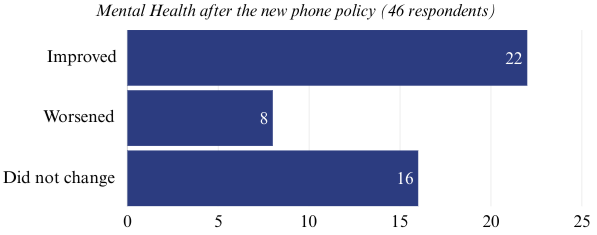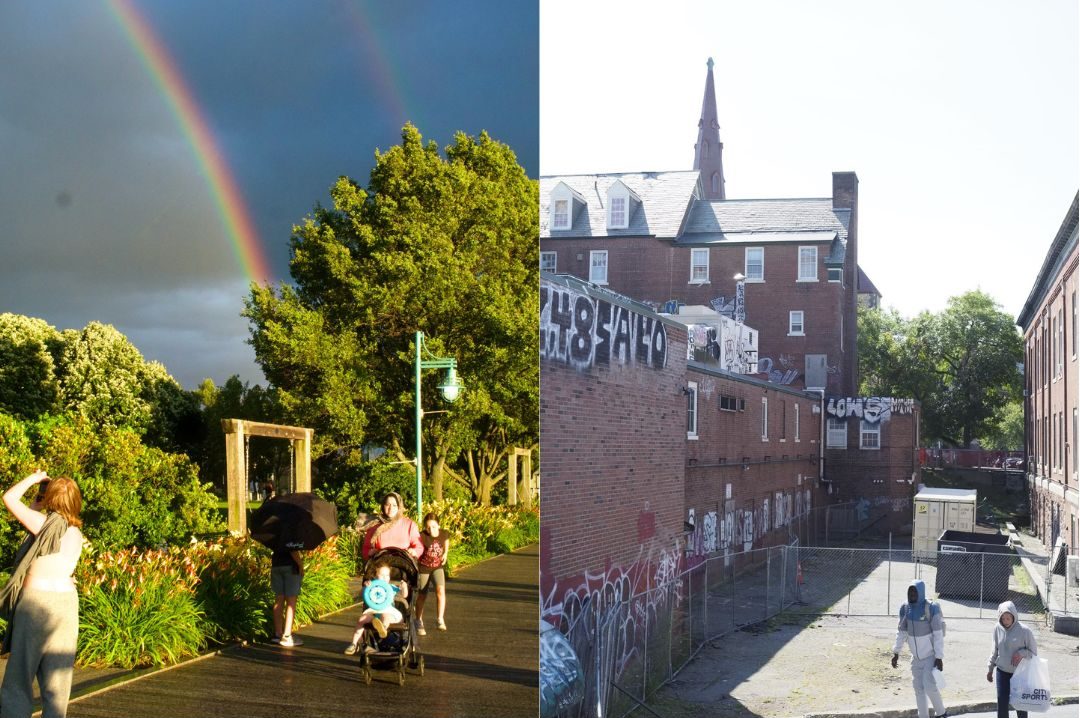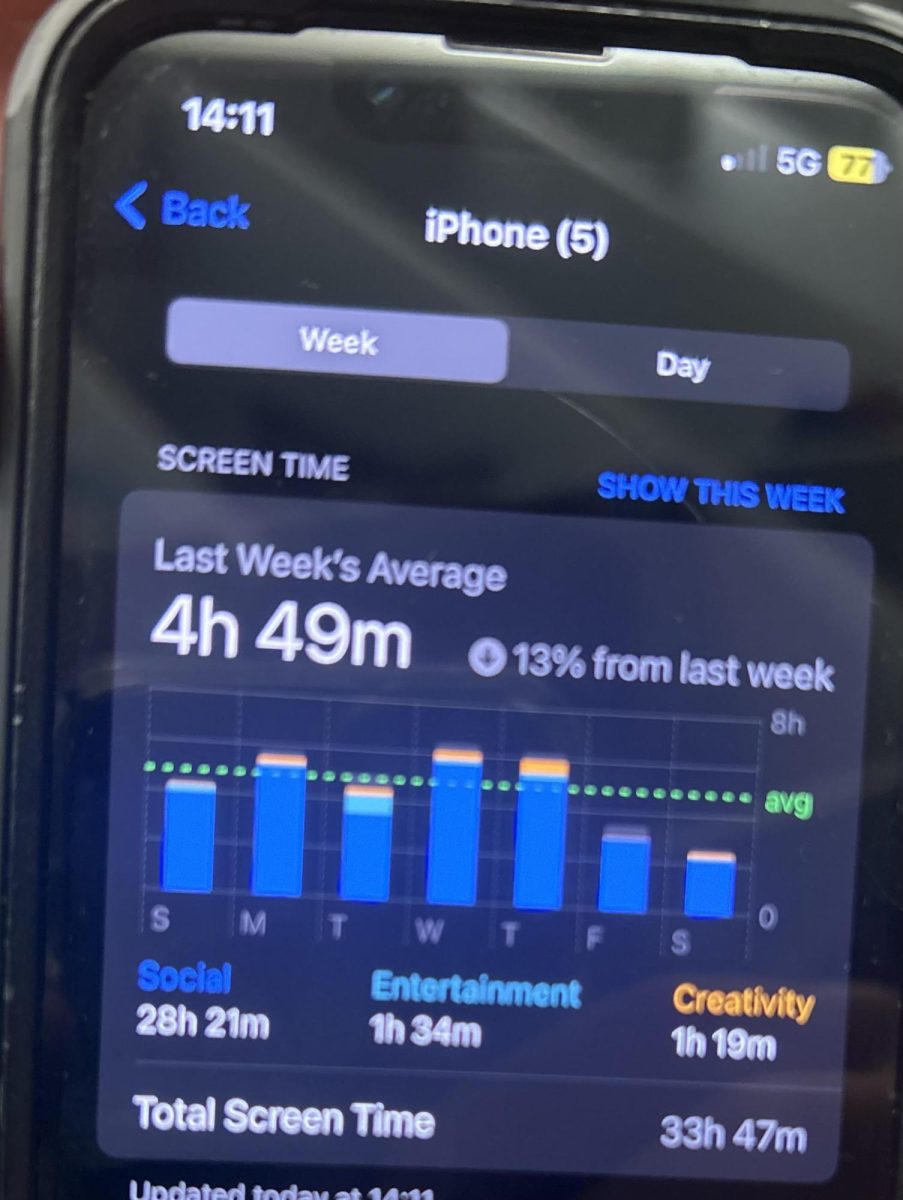Principal Sabrina Westdijk said that mental health was “one of the main reasons” why BHS implemented a new phone policy for the 2024-2025 school year.
A recent Register survey found that 67% of students have struggled with mental health. This is in line with nationwide data that shows students are becoming more likely to experience mental health challenges at school and at home.
Westdijk points to social media as a contributing factor to these trends.
“I think it’s impossible to talk about mental health for young people without also talking about the influence of social media,” Westdijk said. “There is a ton of research around how social media shapes self-esteem, how it can fuel body image issues and how it can be connected to anxiety and depression.”
Since the new phone policy took effect, students have reported mixed feelings. Some feel relieved by the reduced pressure to stay connected online, while others are frustrated by the restrictions. Overall, 53% of students surveyed said that the new policy had not changed their mental health, 31% said that the new phone policy had a mostly positive impact on their mental health and 13% said it had a mostly negative impact on their mental health.
Alena Davis ’26 believes the phone policy isn’t the main issue, it’s whether the administration sees it as the only step to addressing students’ mental health.
“I’m worried that they will just use the phone [policy] and say ‘we’re banning this for people’s mental health’ and then stop there,” Davis said. “It cannot just be like, ‘we’ve done one thing and then it’s fixed.’ It’s going to be a long process.”
Ryan Nest, a BHS mental health counselor, thinks that the next step should be developing a more connected school.
“If we can continue to build community here, whether it’s in individual classrooms or grade levels or a whole school community, we’re going to see kids feeling more connected, happier and wanting to come here,” Nest said.
Brette Fialko-Casey ‘27 agrees that more needs to be done.
“[There needs to be] further steps, for sure, because there haven’t been any real steps yet, the phone policy isn’t a step,” Casey said.
BHS has five school counselors, three mental health clinicians and a substance abuse prevention counselor whose jobs are aimed at supporting students’ mental health. However, some students feel like a lack of resource availability makes it harder for them to get the help they need.
Common answers on how to further combat mental health challenges when surveyed were better options for students who struggle with noise and distractions in classrooms, extensions for homework, respect for student learning plans, and a way to access resources in a more discreet way.
“We’re trying to be as present and as visual, as visible as possible, just so kids know, like, who we are, and that they can totally access us whenever they need,” Nest said.










